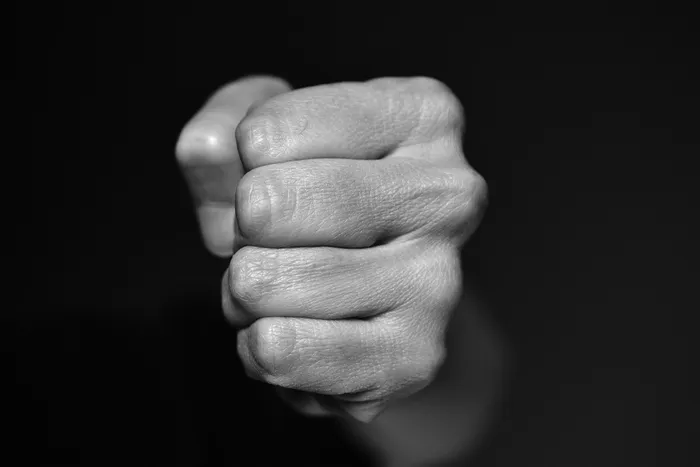
The 16 Days Activism Campaign on no violence against women and children will be observed from Monday. Picture: Pixabay
South African women are under attack.
As the country observes the 16 Days of Activism for No Violence Against Women and Children starting from Monday, it is cold comfort for thousands of people who have lost their loved ones to gender-based violence (GBV).
In August this year, on Women’s Day President Cyril Ramaphosa called on men across South Africa to take a stand against gender-based violence and femicide (GBVF) by signing a virtual pledge.
The pledge commits men to be allies and part of the solution by maintaining positive behaviour and attitudes and to take responsibility for their actions.
However, the crime statistics released by the South African Police Services (SAPS) painted a bleak picture.
Over the past three years, during the same period, more and more women are victims of murder and gender-based violence crimes.
Between April 2024 and June 2024, a staggering 966 women were murdered. During that same period 1644 women were victims of attempted murder and 13, 757 women were victims of assault with grievous bodily harm (GBH).
Since 2022, 111 more women have been murdered.
This week Human Science Research Council released their gender-based violence study. Shocking gender stereotypes and norms were revealed.
The ‘fit-for-purpose’ national study outlined the prevalence of physical, sexual, emotional, and economic violence, and psychological abuse such as controlling behaviours.
The study also showed patterns of violence against women in the country.“
“South Africa remains a society profoundly marked by violence and continues to grapple with the enduring effects of decades of institutionalised racism, sexism, exclusion, structural violence, and other factors that have persistently undermined human development and positive social cohesion,“ the report read.
It further stated that South Africa contends with some of the globe’s highest homicide data and some suggest the country has one of the highest rates of GBV, encompassing intimate femicide, rape, and intimate partner violence.
“The president of South Africa acknowledged that GBV is a severe socio-economic problem, which is fundamentally rooted in unequal power dynamics between women and men.”
The report said that violence against women has been acknowledged as a ‘national crisis’ and a ‘second pandemic’.
While police statistics reveal a grim picture, the HRSC were off the view that police data is known for pervasive under-reporting and inadequate documentation of cases.
The study surveyed 10,012 people from around the country — including 5,603 women and 4,409 men.
Almost 70% agreed that a woman should obey her husband, while 8% of men agreed ‘there are times when a woman deserves to be beaten’.
Many were of the view that it too easy for a woman to bring a violence charge against a man.
The report disturbingly revealed that some men justified violence in certain circumstances and perceive laws as overly lenient toward women.
In terms of being victims of controlling abuse, over 26% of women said their partner would get angry if they spoke to another man, and wanting to know their whereabouts at all times.
Over 44% of men said that they expected their partner to agree to have sex with them when they wanted to.
In terms of addressing GBV, the report suggested that there needed to be evidence-based, culturally relevant interventions tailored for men and women aimed at changing harmful gender norms and attitudes.
“Enforcement of domestic violence laws to protect survivors and expedite legal processes for granting of protection orders and ensuring that the law and GBV services are accessible to all women, especially women with disabilities.”
Professor Shakila Singh from University of KwaZulu-Natal who specialises in gender education and intimate partner violence said GBV is deeply rooted in gender inequalities.
“Gender-based violence is intimately related to the ways in which gender is configured and how the categories of “men” and “women,” positioned in binary and opposite forms, are enacted in relation to cultural norms and intimate practices,“ Singh said.
“It occurs within a complex web that is centred on issues of identity, power and privilege.
“In South Africa, high rates of gender and sexual violence are facilitated by patriarchal cultural norms and gendered power structures.”
Singh said patriarchal cultural beliefs and traditions emphasise male assertiveness and domination of women, influence the constructions of particular types of masculinity, and promote or legitimate GBV.
“These norms often normalise the aggression and entitlement of men and the ownership and control of women. We need to examine the power structures and systems that influence or promote it,” Singh said.
“We have to reject the notion that men’s desire to control and dominate are natural manifestations and instead understand how they are constructed through socialisation and how they may be disrupted and reworked to prevent gender violence.”
Singh was off the view that the focus should not just be on how women should keep themselves safe and on what makes men violent but on how to work with men to transform their gender norms and build gender equality.
“It is important to encourage men to rework their understandings of what it means to be a man, with the hope that newer formations of masculinity that are beneficial for men and less damaging to women will replace harmful ones.”
IOL News